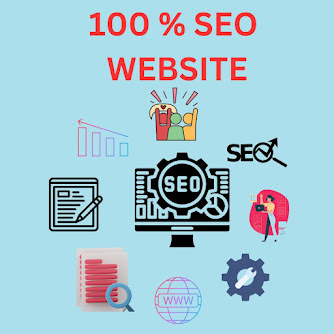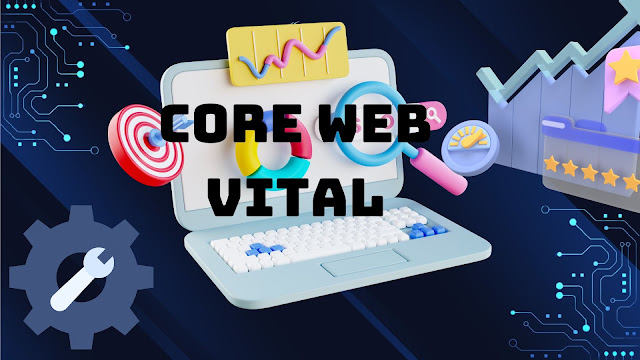Off page seo optimization techniques for small business : Ultimate complete guides and successful tips
Off Page SEO Optimization
In the vast landscape of digital marketing, Search Engine Optimization (SEO) stands tall as a crucial aspect for online success. While on-page SEO focuses on optimizing your website's content and structure, off-page SEO plays an equally vital role in enhancing your online presence. In this comprehensive guide, we will delve into the world of off-page SEO, covering everything from its definition to strategies tailored for small businesses.
What is Off-Page SEO?
Off-page SEO refers to all the activities that take place outside of your website but contribute to its overall visibility and credibility. It's like building a reputation for your website across the vast internet landscape. Off-page SEO is not just about getting more links; it's about building a strong online presence, trust, and authority.
In simpler terms, off-page SEO focuses on factors outside your website that influence your search engine ranking. It's about building "backlinks" (think recommendations from trusted friends) and boosting your website's online authority and credibility.
Types of off page SEO
LinkBuilding
Link building is a cornerstone of off-page SEO. It involves acquiring high-quality backlinks from reputable websites. These links act as endorsements, signaling to search engines that your content is valuable and trustworthy. Techniques such as guest blogging, influencer outreach, and creating shareable content contribute to effective link building.
2. Social Media Marketing
Social media platforms play a pivotal role in off-page SEO. Engaging with your audience on platforms like Facebook, Twitter, Instagram, and LinkedIn not only builds brand awareness but also generates social signals that impact search engine rankings. Regularly sharing content, interacting with followers, and participating in relevant conversations contribute to a robust social media presence.
3. Influencer Marketing
Collaborating with influencers in your industry can significantly amplify your brand's reach. Influencers have established credibility and a dedicated following, making their endorsement a powerful off-page SEO strategy. By partnering with influencers, you can tap into their audience and build trust through association.
4. Content Marketing
Creating valuable and shareable content is a type of off-page SEO that resonates with audiences. This includes blog posts, infographics, videos, and other forms of content that not only provide information but also encourage sharing. Well-crafted content attracts backlinks, social shares, and contributes to overall online authority.
5. Brand Mentions and Online Reviews
When your brand is mentioned on other websites or platforms, it contributes to your online reputation. Positive mentions and reviews on platforms like Google My Business, Yelp, or industry-specific review sites can influence both user trust and search engine rankings. Monitoring and managing brand mentions are integral components of off-page SEO.
Off-Page SEO Factors
1. Backlinks: The backbone of off-page SEO, backlinks are links from other websites pointing to your site. Quality over quantity is the key here.
2. Social Signals: Social media plays a crucial role in off-page SEO. The more your content is shared, liked, and commented on social platforms, the better it is for your website's visibilityEstablish connections with other businesses and influencers in your niche.
.
3. Brand Mentions: When other websites or online platforms mention your brand, it adds to your credibility. Google takes into account how often your brand is mentioned online.
4. Online Reviews and Reputation: Positive reviews on platforms like Google My Business and Yelp can positively impact your website's ranking. A good online reputation is a valuable asset.
5. Social Bookmarking: Submitting your content to social bookmarking sites like Reddit or Digg can boost your content's visibility.
Off-Page SEO Checklist
1. Audit Existing Backlinks: Regularly check the quality of your backlinks and disavow any harmful links.
2. Social Media Presence: Maintain an active and engaging presence on relevant social media platforms.
3. Content Quality: Create high-quality, shareable content that adds value to your audience.
4. Monitor Brand Mentions: Keep track of where and how your brand is mentioned online.
5. Local SEO: Optimize your online presence for local searches through Google My Business and local directories.
Off-Page SEO Tools
1. Ahrefs: For backlink analysis and competitor research.
2. Moz: Offers tools for link building, rank tracking, and site audits.
3. BuzzSumo: Identifies popular content and influential people in your industry.
4. Google Alerts: Monitors brand mentions across the web.
Small Business Focus on Which Strategy?
For small businesses, a well-rounded approach is essential. Focus on:
1. Local SEO: Enhance your visibility in local searches, especially if you have a physical presence.
2. Content Marketing: Create content that addresses your audience's needs and pain points.
3. Social Media Engagement: Actively engage with your audience on social media platforms.
4. Building Relationships: Establish connections with other businesses and influencers in your niche.
Mastering off-page SEO is an ongoing process that requires a strategic and holistic approach. By consistently implementing the right strategies, monitoring your online presence, and adapting to the evolving digital landscape, your small business can significantly improve its visibility, credibility, and ultimately, its success.
In conclusion, off-page SEO is a dynamic and essential component of digital marketing. By understanding its intricacies and tailoring strategies to your small business, you can unlock a world of opportunities for growth and success in the online realm.




Comments
Post a Comment